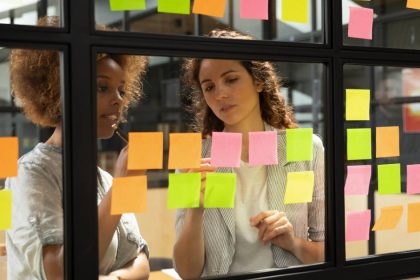It’s no secret that Australia’s traditional education system has remained largely unchanged for decades. After relying on the same class structure and assessment types for the better part of a century, many parents and students are now turning away from the traditional in search of alternative schooling – including home-schooling, virtual schooling and schools driven by fresh educational philosophies. But how do we value an education when exam scores and standardised testing are thrown by the wayside?
The lockdowns of the COVID-19 pandemic have accelerated this rapid rise of alternative education in Australia that is transforming how learning is approached — presenting new and innovative methodologies that cater to the diverse needs of today’s students.
What is alternative education?
Defined by the Queensland government as “a learning program that delivers bespoke approaches to curriculum in response to students’ individual learning, behavioural, social and wellbeing,” alternative education now takes many unique forms.
From virtual schools and home schools to the growing popularity of Montessori and Steiner models, Australian students now have more choices on how they approach their education.
Montessori education
Dr Maria Montessori, a 20th-century physician, created the Montessori method watching children organically learn. Based on her findings, Montessori created the approach to focus on play and work with the notion that kids may manage their own education.
The model involves giving the students the freedom to select the learning tools they want to use. The learning materials and resources offered in Montessori schools claim to foster skills for practical life, with an aim to develop independent skills and promote self-correction.
According to a 2017 study, the Montessori approach was “largely effective for the development of independent skills.” The study’s findings revealed that the “self-learning” education style led to an organic interest in education and an individualised teaching style – contributing factors to the longevity of Montessori schools in Australia, with a history stretching back to at least 1915.
Steiner education
Steiner education is built on the 20th-century philosophy of Rudolf Steiner. It’s also focused on the idea of self-directed learning, Steiner Education Australia, with an approach described as “grounded in working artistically, spiritually, practically and intellectually”.
The focus of Steiner schooling is to “foster the human spirit”, and claims to offer a highly holistic goal of “connecting students to the reverence and awe of the natural environment, one another, and the world around them”.
According to a 2018 survey on Australian Steiner schools, more than 86 per cent of parents are satisfied with their child’s education, and 94 per cent of alums recommend the Steiner education structure.
And when one of Australia’s best-loved cartoon characters attends a TV school based on a real Steiner-style school in Queensland’s Samford Valley, it’s obvious that alternative education has hit the mainstream.
Virtual education
TA mainstay of 21st-century education, technological advancements allow students to take their education entirely in cyberspace. Because it offers a flexible and often self-motivated education style, virtual education could be the way of the future as we move further into the digital age.
Many Australian students experienced the virtual education world for the first time as a direct response to the Australian COVID-19 lockdowns. Today’s students can now easily engage with university-accredited courses and tertiary curriculum content from the comfort of their own homes, with one leading Melbourne private school secondary school launching “Victoria’s first leading online private school” in 2023 and offering a virtual school alternative to non-government school education.
In the public system, access to virtual school has previously been limited by those with unique needs. To enrol in Virtual Schools Victoria (formerly known as Distance Education Centre Victoria), for example, enrolment is only available to eligible Victorian residents who are unable to access regular schooling for a minimum of two consecutive school terms or six consecutive months within a single school year. The defined reasons to be eligible for enrolment, include:
- Medical (physical)
- Medical (social/emotional)
- Travel
- Sports/performance
- Distance
- Young adult
- Previous home-schooler
The University of South Australia has welcomed this evolution of education, claiming that “91 per cent of their students feel supported in their studies.” Currently, the university ranks in the top two for graduate job placement.
Studio schools
A newcomer to the Australian education system, Studio Schools Australia is a newcomer to the Australian education sector and bills itself as Australia’s answer to the dwindling number of indigenous students set to reach year 12 or above. Developed in conjunction with indigenous educators and cultural leaders, Studio Schools Australia claims to “bring together Indigenous and non-Indigenous students to learn from each other across cultures and languages and from different world views”.
Using “practical, hands-on learning across academic learning, industry learning, and personal/social development,” these schools aim to help students get involved in their local communities and become world-ready.
Even though these approaches to education are considered “alternative”, their growing popularity over the last decade brings them closer to the mainstream. Now spanning all Australian States and Territories, you can find your closest alternative school by clicking here.
The benefits of alternative education
Although alternative education was once mainly sought after by parents of students who failed to engage with the mainstream education schooling system, by offering individualised learning experiences that cater to a broader range of learning styles, alternative education is now viewed as a positive choice, rather than as a last resort.
To meet the needs of today’s students, programs target skills mainstream schooling often neglects (self-correction, community involvement, practical applications, etc), to ensure that alternative schools are a driving force of the Australian education system evolution.
As more students explore their educational options at a diverse range of institutions across the nation, mainstream schools will be motivated to rethink their approach, as alternative education becomes an increasingly valid and appealing option for students of all ages.








